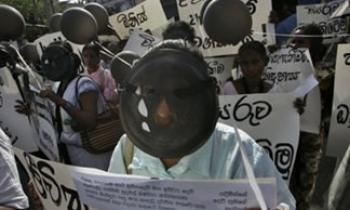TO publish or not to publish the Danish cartoons of the Prophet Mohammed? That's the question weighing on the minds of newspaper editors around the country. The cartoons have caused global outrage but you will probably never see them. And it's a good thing, too.
The 12 drawings by a Danish cartoonist which depict the Prophet Mohammed in a negative light were initially published in a Danish newspaper to highlight the right to free speech and the freedom of expression. They have subsequently been published by newspapers in Europe and most recently by two newspapers in New Zealand.
It is blasphemous in Islam to produce any images of the Prophet let alone ones that ridicule him. Not surprisingly, the cartoons have sparked widespread anger in the Muslim world. The Danish and Norwegian embassies were torched in Syria and there have been a number of violent protests by Muslims in countries that published the cartoons.
There have been angry protests in Auckland and Iranian President Mahmoud Ahmadinejad has cancelled trade contracts with countries that published the cartoons.
Newspapers typically trumpet loudly the right to free speech and expression. Yet it is almost certain that no other newspaper in Australia will follow the lead of Brisbane's The Courier Mail and publish the cartoons.
What about your right to be informed? Well it's just been squashed. This is despite calls by civil liberty groups for newspapers not to be intimidated to not publish the cartoons.
Free Speech Victoria has reflexively declared that newspapers ought not to refuse to publish the cartoons because "the Government says not to, or any other power says not to, or in case someone from the Islamic community says not to".
Fortunately our newspapers are managed by people with a few more "smarts" than unaccountable civil libertarians who have no moral framework for balancing competing rights and interests. It is not that newspaper editors lack courage, but quite simply that he or she has enough smarts to know that when there is a clash between rights (no matter how seemingly fundamental) and the common good, the common good always comes up trumps.
The decision not to publish the cartoons teaches us valuable lessons about our moral code, which go far beyond the issue at hand.
In particular, there is a strong message for civil libertarians, if only they would stop rocking their wonky moral high horse long enough to listen. Civil libertarians are normally hot off the blocks to denounce any interferences of fundamental rights such as the right to life, liberty and free speech.
"The end doesn't justify the means" is the catchcry that they trumpet most loudly in opposition to incursions of fundamental rights that are carried out for the common good.
The truth is that the end does justify the means. Always will. Nothing else matters. Failure to realise this is symptomatic of an unremitting deluded self-righteousness that locks one's moral compass into an inward position, foreclosing consideration of the thing that matters most the common good.
There is no moral principle that could justify publishing gratuitously offensive cartoons, which will certainly anger the religious sensibilities of many Australians.
As a community we lose nothing by not seeing the cartoons. But there is much to lose if we make important decisions on the basis of an unremitting, misguided belief in the notion of absolute rights.
Hopefully the good sense of our newspaper editors will encourage libertarian groups to take a few steps up the moral mountain beyond the rights fog in which they are enveloped.
# Prof Mirko Bagaric is head of Deakin Law School.









